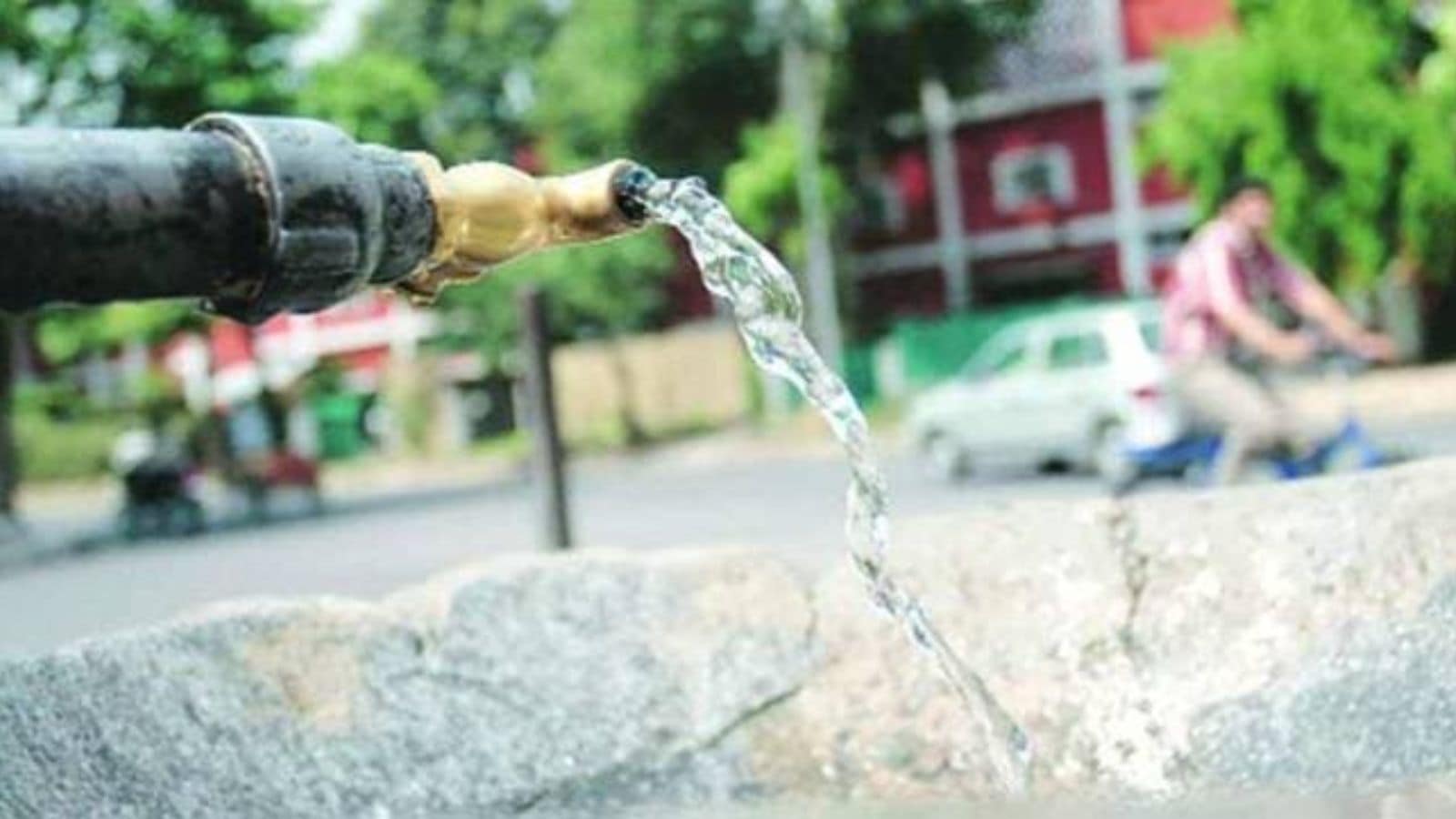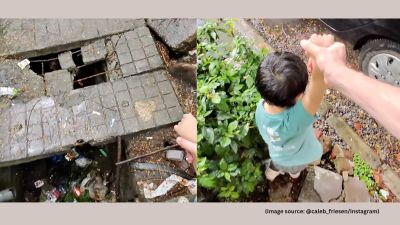The Union government plans to map all drinking water assets including pipelines created under its Jal Jeevan Mission (JJM) on PM Gati Shakti, a Geographic Information System (GIS)-based platform.
The Department of Drinking Water and Sanitation (DDWS) under the Ministry of Jal Shakti signed on Monday an memorandum of agreement (MoA) in this regard with Bhaskaracharya National Institute for Space Applications and Geo-informatics (BISAG-N), an autonomous body registered under the Societies Registration Act, 1860 under the Ministry of Electronics and Information Technology, which has developed the PM Gati Shakti platform. The agreement was signed in the presence of DDWS Secretary Ashok K.K. Meena and Additional Secretary and JJM Mission Director Kamal Kishore Soan . Swati Meena Naik, Joint Secretary (JJM) and Vinay Thakur, Special Director General, BISAG-N exchanged the signed MoA.

In a statement, the Jal Shakti Ministry said, “The partnership marks a significant step towards the development of a GIS-integrated, decision-support platform for the Jal Jeevan Mission (JJM) and Swachh Bharat Mission (Grameen) [SBM(G)] portals. The new platform will enhance data-driven decision-making, planning, monitoring, and evaluation of rural water supply and sanitation initiatives across the country.”
“The platform will also support the creation and mapping of Rural Piped Water Supply Schemes (RPWSS), enabling unique scheme-level IDs and will allow for granular monitoring of water delivery at the household level, facilitating convergence with other rural infrastructure initiatives,” the statement said.
“Under the agreement, BISAG-N will provide end-to-end support including database design, map creation, data migration, software development, and systems integration. The platform will also incorporate advanced features such as ground control surveying, digital photogrammetry, vector data capture, and thematic mapping,” it said.
“Importantly, the initiative will be aligned with the PM GatiShakti National Master Plan, enabling seamless integration of water and sanitation infrastructure with other sectoral assets. This convergence will help in optimizing resource allocation, improving service delivery, and accelerating infrastructure development in rural areas,” it added.
According to officials, the DDWS has already undertaken a pilot of mapping pipelines laid under the JJM on the PM Gati Shakti platform and with the signing of the MoA, all drinking water assets created under the JJM will be geo-tagged on this online platform, said a source. Mapping and geo-tagging of the JJM assets on the online platform will ensure better planning and management, said the officials.
Story continues below this ad
The source said that several lakh kilometers of pipelines have been laid under the JJM over the years. Once it is mapped on the GIS-based platform, it will be useful to manage these assets.
The PM Gati Shakti platform has over 200 GIS layers of information regarding existing infrastructure networks including railways, roads, ports, waterways, airports, logistics infrastructure and mass transport.
The government had launched the JJM in 2019, with an aim of providing tap connections to every rural household by 2024. At that time, the ministry had said that out of 17.87 crore rural households in the country, about 14.6 crore households ( 81.67%) lacked tap connections. For this, an overall allocation of Rs 3.60 lakh crore — Rs 2.08 lakh crore Central share and Rs 1.52 lakh crore states’ share — was allocated. The aim was to provide potable water in adequate quantity i.e. 55 litre per capita per day (lpcd) of prescribed quality i.e. BIS Standard of IS: 10500 on regular basis.
Since the launch of the JJM in 2019, 6.41 lakh water supply schemes, with an overall cost of Rs 8.29 lakh crore, have been approved to provide tap connections to 12.74 crore households. A total expenditure of Rs 3.91 lakh crore has been incurred so far, as per the information available on the JJM dashboard.
Story continues below this ad
While the mission ended in 2024, Finance Minister Nirmala Sitharaman, in her budget speech on February 1, 2025, announced its continuation with enhanced financial support till 2028.
Following this announcement, the Jal Shakti Ministry approached the EFC, seeking approval for enhanced outlay of Rs 9.10 crore including Central share of Rs 4.39 crore. The Jal Shakti Ministry said the Centre had already released Rs 2.08 lakh during 2019-24, therefore, the ministry now requires Rs 2.79 lakh crore. However, the EFC has recommended only Rs 1.51 lakh crore — 46 per cent less than the amount demanded by the Jal Shakti Ministry. The extension of the JJM till 2028 is yet to be approved by the Union Cabinet.









